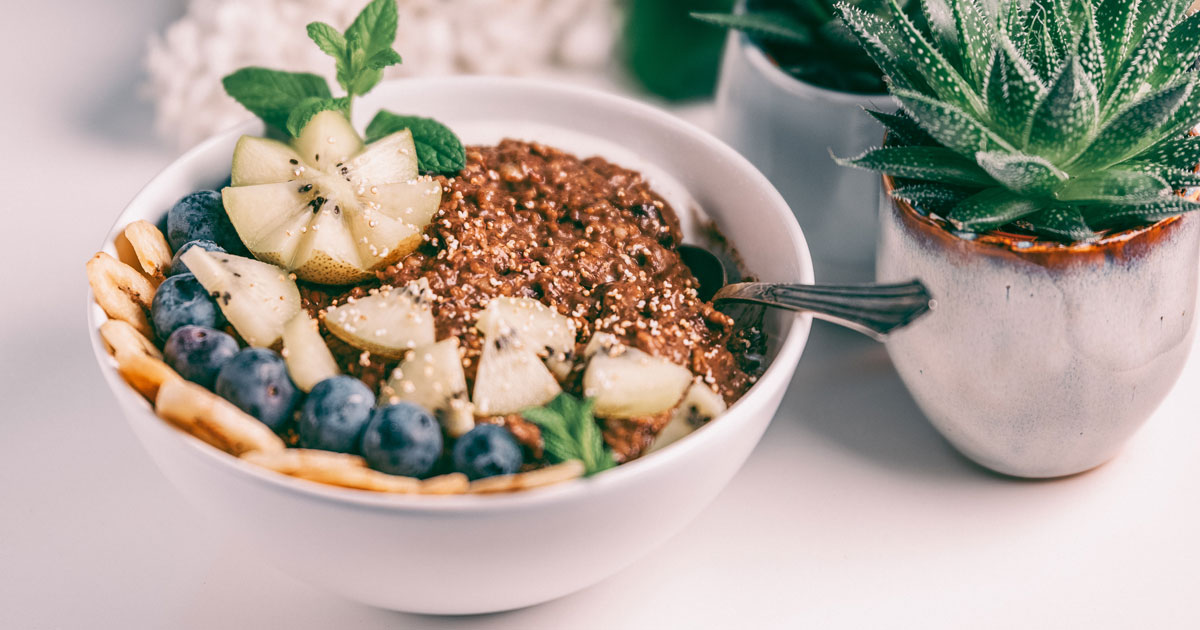
What you eat is one of the most important elements of your overall health. What food you digest has an effect on everything from blood sugar levels to your risk of heart disease. It is also the case that what you can’t digest is almost as important as what you can. Though you can’t digest some kinds of dietary fiber, there are still many health benefits to consuming it.
Dietary fiber plays an important role in digestive health by helping to prevent constipation and regulate metabolic processes, but dietary fiber levels have effects far beyond how often you have a bowel movement. A few of the main health benefits aside from gut health include the following:
It is important to know that a healthy diet containing proper amounts of dietary fiber will include both types of fiber. Insoluble and soluble fiber are differentiated by whether or not they dissolve in water.
Soluble fiber comes from sources such as plant pectin or gum. When exposed to moisture in your digestive system, soluble fiber will form a gel-like substance that may help your body regulate blood glucose levels.
Many of the common sources of soluble fiber include black beans, sweet potatoes and other such vegetables, and legumes. Fruits such as apples, blueberries, cranberries, and concord grapes also make the list, though, clocking in with high doses of soluble fiber.
Insoluble fiber plays a different and more commonly known role—that of helping food move through your digestive tract more easily. By drawing water into your intestines as your body tries to process certain plant foods, insoluble fiber helps to ease constipation.
Sources of insoluble fiber include oat bran, whole wheat, and many leafy vegetables. In addition to the expected sources of insoluble plant cellulose found in vegetable roughage though, some fruits are also great sources of insoluble fiber. Grapes, kiwi fruit, strawberries, and blueberries all provide fiber alongside other important antioxidants and other vitamins.
A fiber-rich diet is important for the proper functioning of your digestive tract, and your dietary fiber intake should include both types of fiber. High fiber foods are also known to help lower cholesterol and even help maintain healthy gut bacteria. Blood sugar regulation, cancer prevention, and even lowered risk of heart disease are all linked to keeping high levels of fiber in your diet.
Soluble fiber has an important role to play in weight loss and weight management as well. By blocking the digestion of some fats and other nutrients, soluble fiber can prevent the blood sugar spike that often follows eating carb-rich foods. A diet high in soluble fiber can lower your risk of obesity, heart disease, and even type 2 diabetes. Insoluble fiber is known for helping to regulate your bowel movements, but it is also linked to improvements in insulin sensitivity.
For all the health benefits fiber can give your body, there can be downsides as well. Consuming too much fiber can lead to abdominal bloating, gas, and abdominal pain. For some people, the amount of water lost to digestion can also put them at risk of dehydration.
Most Americans do not consume enough fiber, so adding some of it to your diet will likely not harm you. If you are going to significantly alter your fiber intake, be sure to talk to your doctor, nutritionist, or dietitian first to see if there may be any possible concerns.
Dried fruit is one of the most important sources of soluble fiber available in food production, whether it is whole dried fruit or fruit solids such as pomace that are added to other end products; adding fiber into shelf stable foods can help provide this important nutrient for people who would not otherwise get enough in their diets, and this can be done with figs, dates, prunes, and blueberries.
At FruitSmart, we know how important a clean and nutritious label can be. While dietary supplements adding dietary fiber to your diet are common, customers are getting wary of long ingredient lists as they become more and more focused on their health. This is why replacing additives, supplements, artificial colors, and sugars with natural ingredients is becoming more and more important to stay competitive in today’s market.
FruitSmart products are not only made into high-quality fresh, NFC, and concentrate juices with the fruit we source from our global network of providers, but the solids left over from the fruit we process has important value as well. In addition to upcycling applications that often involve fruit flours, fruit solids can contain high levels of fiber and other nutrients that can increase the nutritional value of your end products.
Finding new sources of fiber is as important as ever. With 90% of Americans getting less fiber than they should, gluten-free, fruit-based fiber sources can help change that. Since day one, FruitSmart has been committed to finding innovative solutions to the challenges our partners face in producing products that will keep consumers coming back again and again. No matter what the business climate, starting with high quality ingredients and providing ingenious ways to use every part of the fruit we process is a recipe for success.
Whether your end products need extra fiber or better flavor, contact us today to learn more about the advantages of partnering with FruitSmart.
